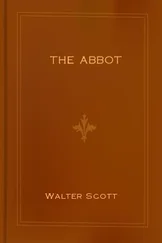Walter Scott - The Betrothed
Здесь есть возможность читать онлайн «Walter Scott - The Betrothed» весь текст электронной книги совершенно бесплатно (целиком полную версию без сокращений). В некоторых случаях можно слушать аудио, скачать через торрент в формате fb2 и присутствует краткое содержание. Год выпуска: 2004, Жанр: Старинная литература, на английском языке. Описание произведения, (предисловие) а так же отзывы посетителей доступны на портале библиотеки ЛибКат.
- Название:The Betrothed
- Автор:
- Жанр:
- Год:2004
- ISBN:нет данных
- Рейтинг книги:3 / 5. Голосов: 1
-
Избранное:Добавить в избранное
- Отзывы:
-
Ваша оценка:
- 60
- 1
- 2
- 3
- 4
- 5
The Betrothed: краткое содержание, описание и аннотация
Предлагаем к чтению аннотацию, описание, краткое содержание или предисловие (зависит от того, что написал сам автор книги «The Betrothed»). Если вы не нашли необходимую информацию о книге — напишите в комментариях, мы постараемся отыскать её.
The Betrothed — читать онлайн бесплатно полную книгу (весь текст) целиком
Ниже представлен текст книги, разбитый по страницам. Система сохранения места последней прочитанной страницы, позволяет с удобством читать онлайн бесплатно книгу «The Betrothed», без необходимости каждый раз заново искать на чём Вы остановились. Поставьте закладку, и сможете в любой момент перейти на страницу, на которой закончили чтение.
Интервал:
Закладка:
And, indeed, conscious that she had done all that was incumbent upon her, and fearful lest the chill which she felt creeping over her own heart should infect others, Eveline took her vassal's advice, and withdrew slowly to her own apartment, often casting back her eye to the place where the Welsh, now drawn out and under arms, were advancing their ridgy battalions, like the waves of an approaching tide.
The Prince of Powys had, with considerable military skill, adopted a plan of attack suitable to the fiery genius of his followers, and calculated to alarm on every point the feeble garrison.
The three sides of the castle which were defended by the river, were watched each by a numerous body of the British, with instructions to confine themselves to the discharge of arrows, unless they should observe that some favourable opportunity of close attack should occur. But far the greater part of Gwenwyn's forces, consisting of three columns of great strength, advanced along the plain on the western side of the castle, and menaced, with a desperate assault, the walls, which, in that direction, were deprived of the defence of the river. The first of these formidable bodies consisted entirely of archers, who dispersed themselves in front of the beleaguered place, and took advantage of every bush and rising ground which could afford them shelter; and then began to bend their bows and shower their arrows on the battlements and loop-holes, suffering, however, a great deal more damage than they were able to inflict, as the garrison returned their shot in comparative safety, and with more secure and deliberate aim. [16] The Welsh were excellent bowmen; but, under favour of Lord Lyttleton, they probably did not use the long bow, the formidable weapon of the Normans, and afterwards of the English yeomen. That of the Welsh most likely rather resembled the bow of the cognate Celtic tribes of Ireland, and of the Highlanders of Scotland. It was shorter than the Norman long bow, as being drawn to the breast, not to the ear, more loosely strung, and the arrow having a heavy iron head; altogether, in short, a less effective weapon. It appears, from the following anecdote, that there was a difference between the Welsh arrow and those of the English.
Under cover, however, of their discharge of arrows, two very strong bodies of Welsh attempted to carry the outer defences of the castle by storm. They had axes to destroy the palisades, then called barriers; faggots to fill up the external ditches; torches to set fire to aught combustible which they might find; and, above all, ladders to scale the walls.
These detachments rushed with incredible fury towards the point of attack, despite a most obstinate defence, and the great loss which they sustained by missiles of every kind, and continued the assault for nearly an hour, supplied by reinforcements which more than recruited their diminished numbers. When they were at last compelled to retreat, they seemed to adopt a new and yet more harassing species of attack. A large body assaulted one exposed point of the fortress with such fury as to draw thither as many of the besieged as could possibly be spared from other defended posts, and when there appeared a point less strongly manned than was adequate to defence, that, in its turn, was furiously assailed by a separate body of the enemy.
Thus the defenders of the Garde Doloureuse resembled the embarrassed traveller, engaged in repelling a swarm of hornets, which, while he brushes them, from one part, fix in swarms upon another, and drive him to despair by their numbers, and the boldness and multiplicity of their attacks. The postern being of course a principal point of attack, Father Aldrovand, whose anxiety would not permit him to be absent from the walls, and who, indeed, where decency would permit, took an occasional share in the active defence of the place, hasted thither, as the point chiefly in danger.
Here he found the Fleming, like a second Ajax, grim with dust and blood, working with his own hands the great engine which he had lately helped to erect, and at the same time giving heedful eye to all the exigencies around.
"How thinkest thou of this day's work?" said the monk in a whisper.
"What skills it talking of it, father?" replied Flammock; "thou art no soldier, and I have no time for words."
"Nay, take thy breath," said the monk, tucking up the sleeves of his frock; "I will try to help thee the whilst—although, our Lady pity me, I know nothing of these strange devices—not even the names. But our rule commands us to labour; there can be no harm therefore, in turning this winch—or in placing this steel-headed piece of wood opposite to the chord, (suiting his actions to his words,) nor see I aught uncanonical in adjusting the lever thus, or in touching the spring."
The large bolt whizzed through the air as he spoke, and was so successfully aimed, that it struck down a Welsh chief of eminence, to which Gwenwyn himself was in the act of giving some important charge.
"Well driven, trebuchet —well flown, quarrel! " cried the monk, unable to contain his delight, and giving in his triumph, the true technical names to the engine, and the javelin which it discharged.
"And well aimed, monk," added Wilkin Flammock; "I think thou knowest more than is in thy breviary."
"Care not thou for that," said the father; "and now that thou seest I can work an engine, and that the Welsh knaves seem something low in stomach, what think'st thou of our estate?"
"Well enough—for a bad one—if we may hope for speedy succour; but men's bodies are of flesh, not of iron, and we may be at last wearied out by numbers. Only one soldier to four yards of wall, is a fearful odds; and the villains are aware of it, and keep us to sharp work."
The renewal of the assault here broke off their conversation, nor did the active enemy permit them to enjoy much repose until sunset; for, alarming them with repeated menaces of attack upon different points, besides making two or three formidable and furious assaults, they left them scarce time to breathe, or to take a moment's refreshment. Yet the Welsh paid a severe price for their temerity; for, while nothing could exceed the bravery with which their men repeatedly advanced to the attack, those which were made latest in the day had less of animated desperation than their first onset; and it is probable, that the sense of having sustained great loss, and apprehension of its effects on the spirits of his people, made nightfall, and the interruption of the contest, as acceptable to Gwenwyn as to the exhausted garrison of the Garde Doloureuse.
But in the camp or leaguer of the Welsh there was glee and triumph, for the loss of the past day was forgotten in recollection of the signal victory which had preceded this siege; and the dispirited garrison could hear from their walls the laugh and the song, the sound of harping and gaiety, which triumphed by anticipation over their surrender.
The sun was for some time sunk, the twilight deepened, and night closed with a blue and cloudless sky, in which the thousand spangles that deck the firmament received double brilliancy from some slight touch of frost, although the paler planet, their mistress, was but in her first quarter. The necessities of the garrison were considerably aggravated by that of keeping a very strong and watchful guard, ill according with the weakness of their numbers, at a time which appeared favourable to any sudden nocturnal alarm; and, so urgent was this duty, that those who had been more slightly wounded on the preceding day, were obliged to take their share in it, notwithstanding their hurts. The monk and Fleming, who now perfectly understood each other, went in company around the walls at midnight, exhorting the warders to be watchful, and examining with their own eyes the state of the fortress. It was in the course of these rounds, and as they were ascending an elevated platform by a range of narrow and uneven steps, something galling to the monk's tread, that they perceived on the summit to which they were ascending, instead of the black corslet of the Flemish sentinel who had been placed there, two white forms, the appearance of which struck Wilkin Flammock with more dismay than he had shown during any of the doubtful events of the preceding day's fight.
Читать дальшеИнтервал:
Закладка:
Похожие книги на «The Betrothed»
Представляем Вашему вниманию похожие книги на «The Betrothed» списком для выбора. Мы отобрали схожую по названию и смыслу литературу в надежде предоставить читателям больше вариантов отыскать новые, интересные, ещё непрочитанные произведения.
Обсуждение, отзывы о книге «The Betrothed» и просто собственные мнения читателей. Оставьте ваши комментарии, напишите, что Вы думаете о произведении, его смысле или главных героях. Укажите что конкретно понравилось, а что нет, и почему Вы так считаете.





